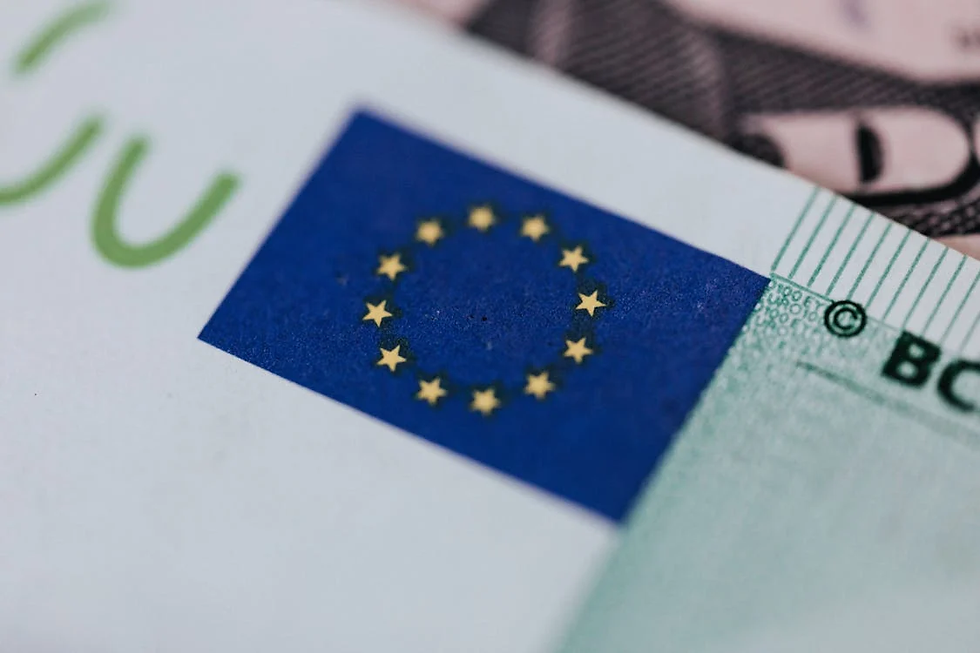Georgia Revokes "Foreign Influence" Laws which Sparked Protests
- Elizabeth Bratton

- Mar 16, 2023
- 4 min read
Updated: Dec 23, 2024
On Friday the 10th of March, Georgia’s parliament officially revoked a proposed “foreign influence” law which caused several days of protests, during which over 100 people were arrested.
Two draft bills had been under consideration until Friday: the first would have required organisations, such as Non-Governmental Organisations and media companies to declare themselves “foreign agents” if 20% or more of their annual income came from abroad. Those who failed to do so would have faced fines of almost 10,000 US Dollars.
Under the second bill, individuals rather than companies or organisations could have been labelled “agents of foreign influence”, and their punishments could be as severe as five years’ imprisonment rather than fines.
The first version of the bill was passed in a parliamentary session on Tuesday the 7th of March, with 76 votes for and 13 against. However, it would have needed to pass further readings to become official law.

From Tuesday 7th of March, and during the following days, tens of thousands of protesters gathered outside the Parliament building based in Georgia’s capital, Tbilisi. One of the main criticisms of the proposed law was that it resembled legislation weaponised by Russia’s Kremlin to shut down human rights organisations, activists, media companies, and journalists.
The Russian foreign agent law mandates that anyone receiving “support” from abroad or who is under the “influence” of a foreign body must register and declare themselves a “foreign agent”. These “foreign agents” are subject to audits and must add a disclaimer to any published work, acknowledging that their work is being distributed by a “foreign agent”. The law was introduced after protests were sparked when Vladimir Putin was elected as president in 2012. Originally, the law focused on NGOs which were receiving funding from abroad and conducted “political activity”. In 2017, the law expanded to encompass media organisations. In 2019, private individuals and groups involved in the publishing of “printed, audio, audio visual or other reports and materials” became subject to the law.
Another concern was the impact such legislation might have on the country’s application to join the EU; this application was submitted shortly after Russia’s invasion of Ukraine in March 2022. Many EU officials were critical of the proposed law, with the European Council president, Charles Michel, tweeting: Adoption of this ‘foreign influence’ law is not compatible with the EU path, which the majority in Georgia wants.” According to a November 2022 survey, EU membership is indeed what the majority (85%) in Georgia wants.
Those opposing the new law were seen carrying Georgian, EU, and Ukrainian flags; chants of “No to the Russian law” could be heard, and protesters blocked central street Rustaveli Avenue. The protests became violent, with police officers facing petrol bombs on the first night of protests and protesters encountering riot shields, water cannons, and teargas on the first two nights.
Georgian prime minister Irakli Garibashvili (of the Georgian Dream party) supported the proposed law, arguing: “The future of our country doesn't belong to and will not belong to foreign agents and servants of foreign countries.” He also claimed that the proposed bill met “European and global standards.”
After Ukrainian president Volodymyr Zelenskyy thanked Georgian protesters for waving Ukrainian flags, and wished the activists “democratic success”, Garibashvili discouraged Ukrainian politicians from interfering in Georgian matters, accusing Zelenskyy of being involved in the coordination of the protests: “When a person who is at war… responds to the destructive action of several thousand people here in Georgia, this is direct evidence that this person is involved.”
Meanwhile, Georgian president Salome Zourabichvili pledged to veto the law if it crossed her desk, expressing her support for the protesters. She justified her position: "You represent a free Georgia, a Georgia which sees its future in the West, and won't let anyone take this future away," adding: "Nobody needs this law ... everyone who has voted for this law has violated the constitution.”
On the third consecutive day of protests, Thursday 9th of March, at least 30,000 protesters took to the streets of Georgia, despite the ruling party confirming that morning that it would abandon attempts to pass the law. Onlookers could hear Georgian and Ukrainian songs, as well as the European Union’s anthem “Ode to Joy”. Some protesters called for the government to resign. That evening, Zourabichvili published a televised address, applauding the protesters for their efforts: "I want to congratulate society on its first victory. I am proud of the people who made their voices heard,” adding: "There is distrust towards the government as we pursue our European path."
Russian ministers have criticised the anti-Russian sentiments which are fuelling the protests. Russian Foreign Minister Sergei Lavrov expressed his belief that the protests “are of course being orchestrated from abroad”, with the intention of creating “an irritant on the borders of Russia.”
Deputy Foreign Minister for Russia Alexander Grushko confirmed that Russia is “concerned” about the situation in Georgia as the two countries are “neighbours.” He continued, “we see that the US and its satellites are working to create more and more hotbeds of tension along our borders and are trying to arrange some kind of geopolitical competition in these zones, which are key, even for geographical reasons, for the security interests of the Russian Federation,” and accused Western states of having a “neocolonial approach.”
All activists arrested during the protests have reportedly been released.

_edited.png)


Comments